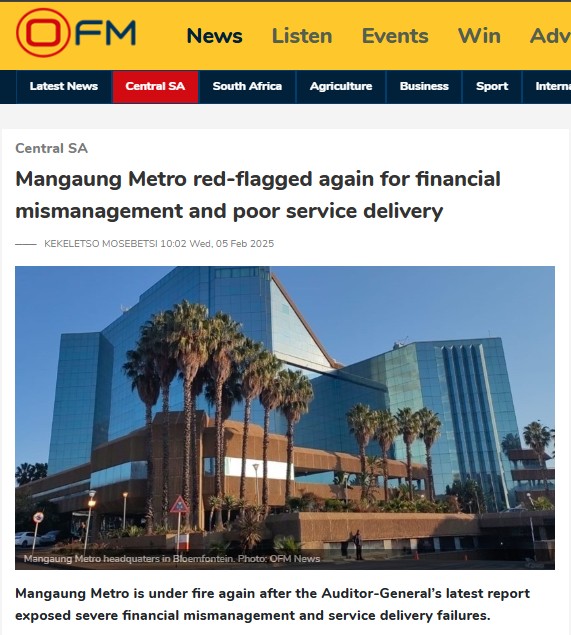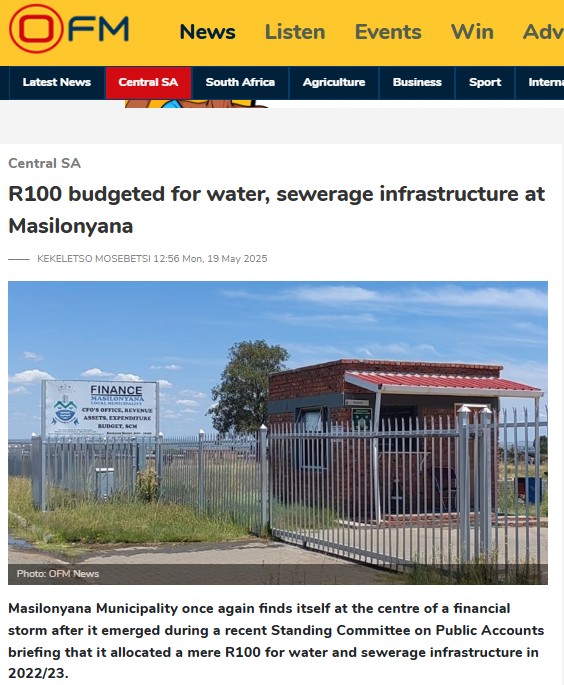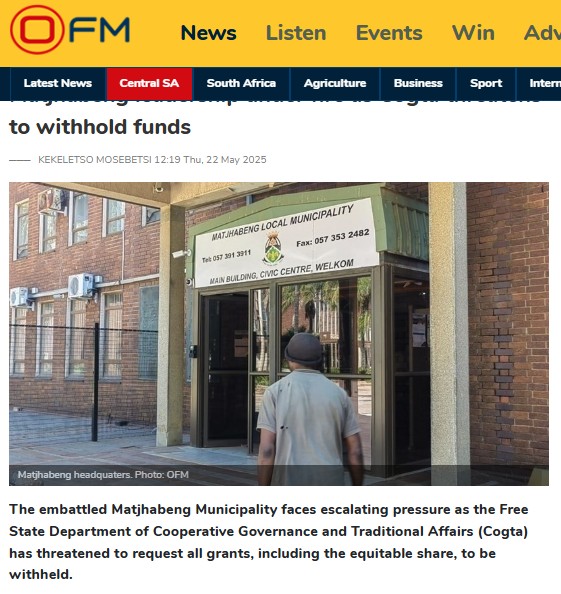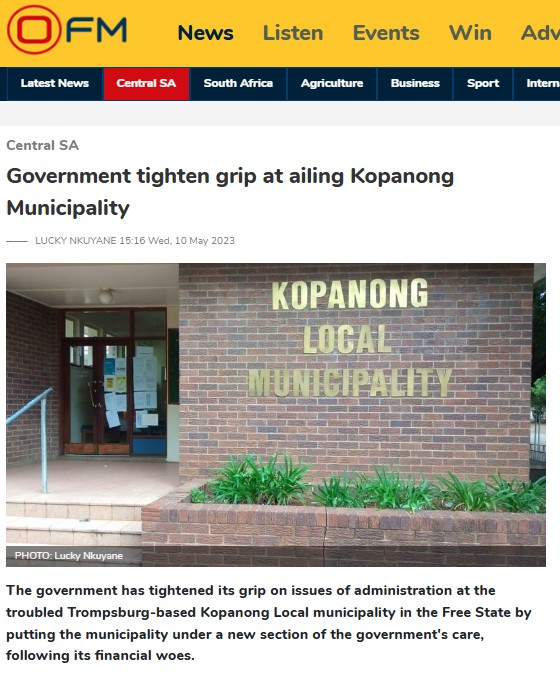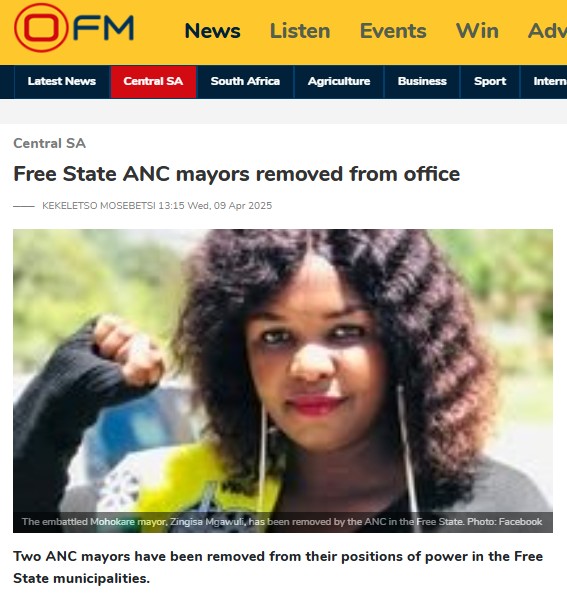Central SA
Municipal governance in Free State under spotlight─── KEKELETSO MOSEBETSI 06:00 Thu, 24 Jul 2025

The state of Free State municipalities will be under scrutiny on Thursday as the Portfolio Committee on Cooperative Governance and Traditional Affairs (COGTA) conducts an oversight visit to address the province’s ongoing governance crisis.
The intervention comes on the heels of alarming findings in the 2023/24 municipal audit outcomes, which paint a grim picture of financial mismanagement, governance failures, and the erosion of service delivery.
The oversight visit is set to address persistent issues plaguing Free State municipalities, particularly underperformance in governance and finances. According to National Parliament’s communications officer, Alicestine October, the committee will be joined by members from Parliament’s standing committees on Public Accounts (SCOPA) and the Auditor-General.
The visit will span over two days, starting Thursday (24/7), and will be led by the Chairperson of the Portfolio Committee on COGTA, Dr Zweli Mkhize. It will involve close collaboration with the Free State Legislature, the Office of the Premier, and the MEC for COGTA.
October stressed that this intervention is a direct response to a sharp regression in municipal performance across the Free State. The Auditor-General has identified the province as one of the worst-performing regions in South Africa, with a litany of concerning findings.
These include 16 municipalities with unfunded budgets, over R4.2 billion in unauthorised expenditure, repeated disclaimer audit opinions, and widespread failure to submit financial statements on time.
Among the municipalities facing the most scrutiny is Mangaung Metro, which is grappling with severe ongoing risk concerns. In a stark illustration of the financial crisis, the municipality was forced to return R194 million in unspent grants for the 2023/24 financial year.
In addition, poor consequence management, ineffective oversight structures, investigations into irregular expenditure, and a decline in the quality of basic services and infrastructure have compounded the challenges facing the metro.
The Masilonyana Municipality also finds itself in the crosshairs of the Portfolio Committee after facing severe criticism during meetings earlier this year. The municipality has been lambasted for its lack of consequence management, leading opposition parties to label it as a symbol of dysfunction.
For nearly a decade, Masilonyana has received a disclaimer audit opinion every year, which highlights its failure to submit proper financial records or statements for scrutiny.
This has drawn sharp criticism from residents, opposition parties, and even law enforcement agencies, all of whom have raised alarms about the state of service delivery and transparency in the ANC-run municipality.
The Welkom-based Matjhabeng Municipality has also come under heavy fire for its poor service delivery record and its leaders embroiled in scandals. Most notably, the mayor of Matjhabeng, Thanduxolo Khalipha, was found guilty of assaulting his bodyguard, an incident that sparked widespread outrage.
Despite the conviction, he returned to office, only for the municipality to be placed under administration weeks later due to the ongoing governance challenges.
Meanwhile, the cash-strapped Kopanong Municipality has long struggled with low revenue collection, huge wage bills, and poor service delivery. This has left the municipality in a financial crisis, with mounting debt to service providers like Bloem Water.
Mohokare Municipality’s former mayor, Zingisa Mgawuli, was removed from office earlier this year, while the Nala mayor, Nozililo Mashiya, faced suspension during a council meeting in April.
As the province continued to grapple with growing protests, service delivery breakdowns, and allegations of municipal corruption, these developments highlight the urgency of reform.
As part of the oversight visit, mayors, speakers, and municipal managers will be called upon to answer tough questions from the Portfolio Committee between Thursday and Friday (25/7).
October emphasised that the joint oversight initiative seeks to hold political and administrative leadership accountable, ensure the implementation of financial recovery plans, and impose consequences for persistent non-compliance.

